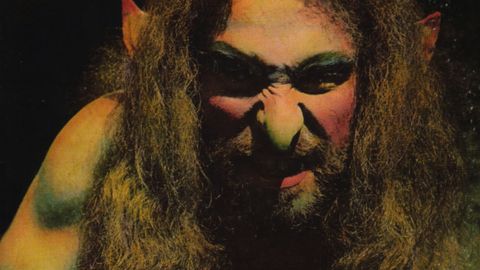In 1972, at the age of 30, Ronnie James Dio was finally getting somewhere. American band Elf – in which Dio was lead singer and bassist – were signed to Deep Purple’s label Purple Records, and this, their first album, was produced by Purple’s bassist Roger Glover and drummer Ian Paice.
But in the end, it was not with Elf that Dio would become famous. That came later, with another Purple connection…
Of the three albums by Elf, the debut is the best. The band’s default setting was heavy rock with a blues influence, typified by groovy opening track Hoochie Koochie Lady. Guitarist Dave ‘Rock’ Feinstein, Dio’s cousin, hit sweet notes on Dixie Lee Junction, a song with echoes of The Faces.
Above all, Dio’s voice is powerful and richly expressive. Much of the band’s material was generic, though, as were the two albums that followed, both recorded after Feinstein left.
Ultimately, Dio was wasted in Elf. To achieve his full potential, he needed to work with major talent. The opportunity arrived in 1975 when guitarist Ritchie Blackmore quit Deep Purple and installed Dio as the singer in his new group Rainbow, alongside three other ex-members of Elf. And while those other guys lasted in Rainbow for just one album, it was in this band that Ronnie James Dio came of age./o:p


